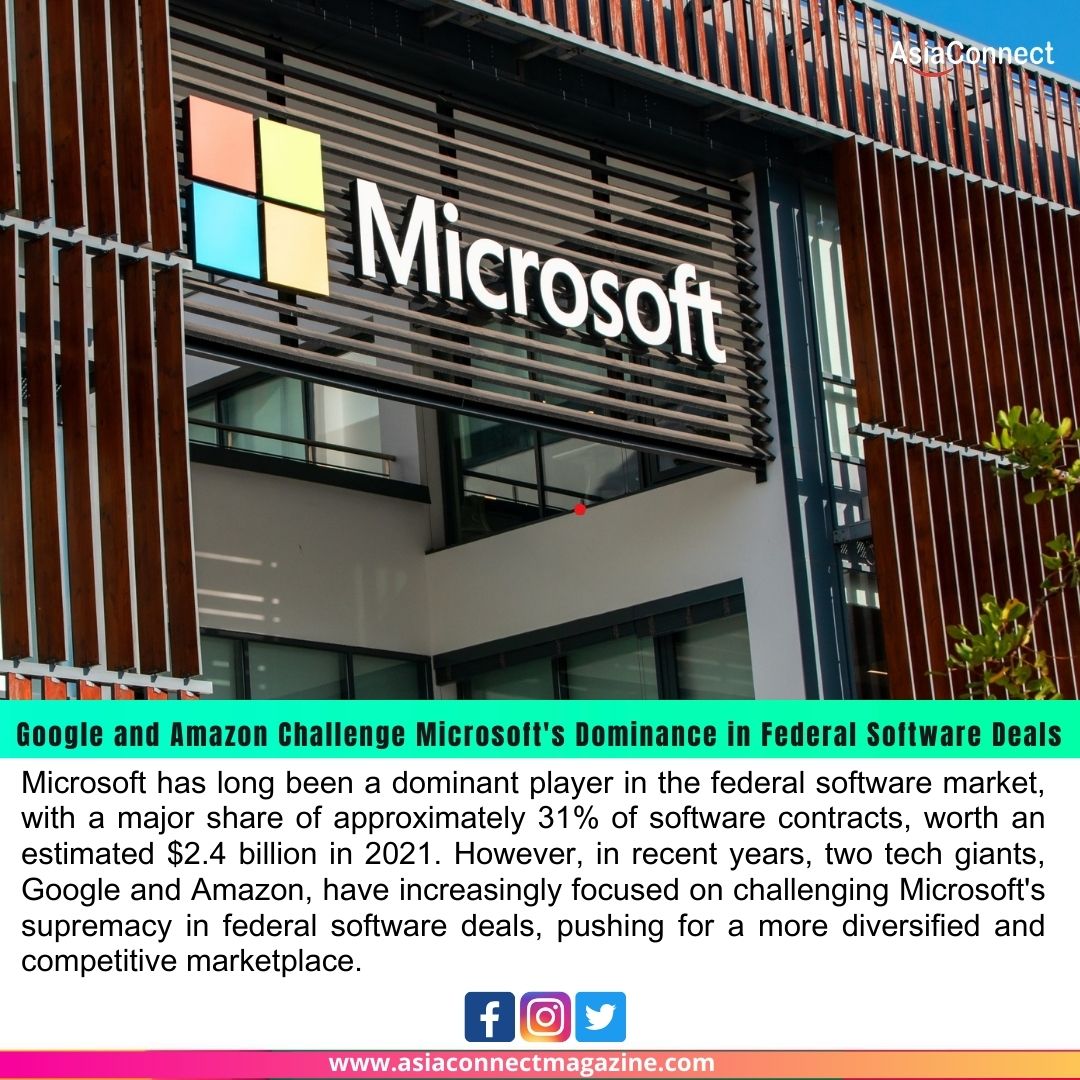Microsoft has long been a dominant player in the federal software market, with a major share of approximately 31% of software contracts, worth an estimated $2.4 billion in 2021. However, in recent years, two tech giants, Google and Amazon, have increasingly focused on challenging Microsoft’s supremacy in federal software deals, pushing for a more diversified and competitive marketplace.
Microsoft’s Stronghold on Federal Software Deals
Microsoft’s influence in the federal government’s software contracts is a testament to its longstanding relationship with the U.S. government. Over the years, the company has been the preferred choice for a wide range of software products and services, from operating systems and office productivity software to cloud solutions. This dominance has been reinforced through years of contractual agreements and strategic partnerships that have made Microsoft the go-to software provider for federal agencies.
The $2.4 billion figure in 2021 underscores just how entrenched Microsoft is in the federal sector, with its software solutions being used by numerous government departments, agencies, and contractors. From the Department of Defense to the U.S. Postal Service, Microsoft products have powered critical government operations for decades.
The Rise of Google and Amazon in the Federal Sector
While Microsoft’s grip on the federal software market is undeniable, Google and Amazon have been actively working to chip away at its dominance. These tech companies, which initially gained recognition for their consumer-facing products, have pivoted aggressively into the federal space, leveraging their cloud computing and AI capabilities to offer innovative solutions to government agencies.
Amazon, through its cloud computing arm Amazon Web Services (AWS), has become a formidable competitor to Microsoft in the federal cloud services market. AWS’s proven scalability, security, and innovative solutions have made it a popular choice for various government agencies looking for flexible cloud computing platforms. In fact, AWS’s cloud services were instrumental in securing numerous high-profile contracts with agencies such as the Central Intelligence Agency (CIA) and the Department of Defense. These agencies sought to modernize their IT infrastructure and transition to cloud-based solutions, where AWS has been able to offer a more cost-effective, reliable, and secure solution compared to traditional providers like Microsoft.
Similarly, Google has also been pushing its enterprise services, particularly its Google Cloud platform, to federal agencies. With its strengths in artificial intelligence (AI), machine learning, and data analytics, Google has been positioning itself as an innovator in the field of cloud computing and data management. In addition to its capabilities, Google has made significant efforts to emphasize its commitment to security and privacy, which are crucial concerns for the federal government.
The Federal Push for Diversity and Competition
The federal government’s push for a more competitive and diverse marketplace is another key factor behind the challenge to Microsoft’s dominance. Historically, Microsoft has enjoyed preferential treatment in government contracts, but that is changing as government agencies increasingly look for alternatives that can offer better value, flexibility, and innovation. The move to embrace multi-cloud and hybrid-cloud strategies has opened the door for companies like Amazon and Google to offer their services alongside Microsoft’s solutions, giving government agencies more options to choose from.
Moreover, the Federal Cloud Computing Strategy (often referred to as “Cloud Smart”), which encourages government agencies to utilize a mix of cloud service providers, has further facilitated the entry of companies like Amazon and Google. This strategy focuses on improving the security, flexibility, and cost-effectiveness of cloud infrastructure, creating a more competitive environment in the federal software market.
Conclusion
While Microsoft continues to hold a commanding lead in federal software contracts, the increasing push from Google and Amazon is signaling a shift in the landscape. With their cloud services, AI capabilities, and focus on security and innovation, these companies are steadily gaining ground in the federal market. As the government embraces more diverse, multi-cloud strategies, it is clear that the competitive dynamics in federal software deals are evolving. The next few years will likely see an even greater challenge to Microsoft’s stronghold, potentially reshaping the future of technology contracts in the federal sector.





